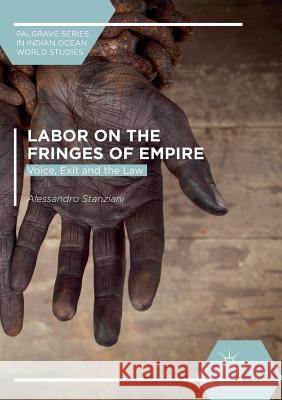Labor on the Fringes of Empire: Voice, Exit and the Law » książka
topmenu
Labor on the Fringes of Empire: Voice, Exit and the Law
ISBN-13: 9783319889306 / Angielski / Miękka / 2019 / 334 str.
Kategorie BISAC:
Wydawca:
Palgrave MacMillan
Seria wydawnicza:
Język:
Angielski
ISBN-13:
9783319889306
Rok wydania:
2019
Wydanie:
Softcover Repri
Ilość stron:
334
Waga:
0.41 kg
Wymiary:
21.01 x 14.81 x 1.85
Oprawa:
Miękka
Wolumenów:
01
Dodatkowe informacje:
Wydanie ilustrowane











